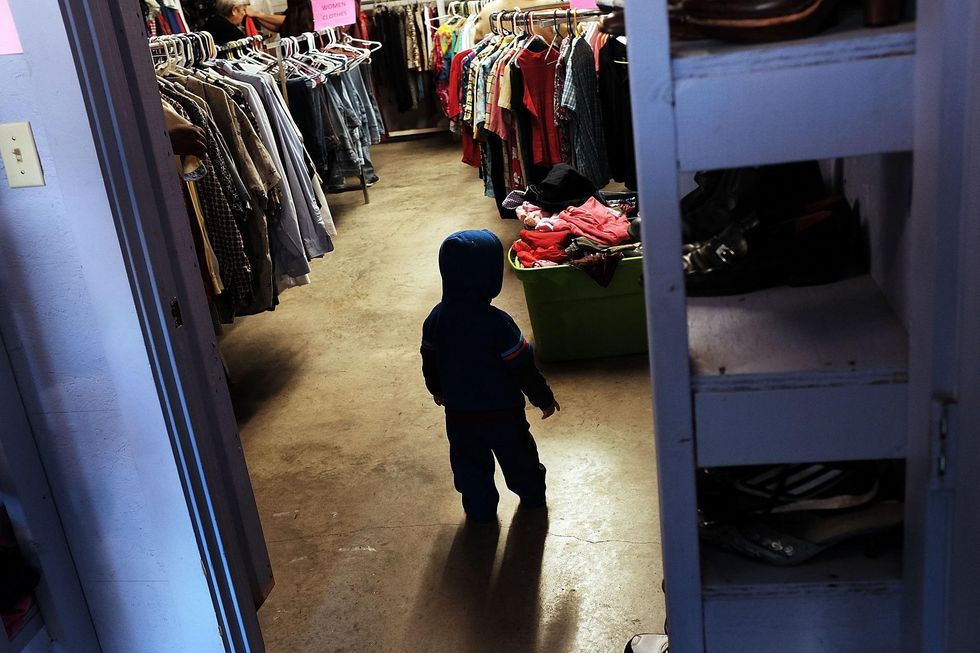
According to the most recent census data, a majority of children in the United States live in households receiving government assistance. (Spencer Platt/Getty Images)

According to the latest data from the U.S. Census Bureau, a majority of Americans under the age of 18 are living in households that receive "means-tested assistance" from the government.
In conjunction with the Bureau of Labor Statistics, the Census Bureau published the most recent findings from its 2017 Current Population Survey Annual Social and Economic Supplement. The survey asked participants to report their poverty status for 2016.
The report provides breakdowns by age, gender, income levels, and race outlining the number and percentages of citizens living in households receiving food stamps, Medicaid, public housing, cash, and school-lunch assistance.
The data show that children under the age of 18 were the most likely demographic to live in a household receiving some sort of government assistance, at 52.1 percent.
In a commentary piece published Wednesday, CNSNews.com editor in chief Terence P. Jeffrey asked whether the latest crop of U.S. youngsters will "be called The Welfare Generation."
Jeffrey pointed to several statistics showing a continued rise in the percentage of Americans on the government dole, particularly kids.
For the past four years, he said, a majority of citizens under the age of 18 lived in households where at least one member was receiving some type of means-tested assistance.
In households with kids under 18 headed by a female without a spouse, 78 percent received assistance in 2016 according to the census report. In households with kids under the age of 6 headed by a female without a spouse, the percentage receiving assistance jumps to 81.8 percent.
"America's prosperity is ultimately and inextricably tied to America's culture," Jeffrey said. "If we want to see the former flourish, the latter must also."
Numerous studies suggest that children whose parents rely on welfare will be more likely to utilize welfare services themselves as adults. In a 2015 study conducted by the University of Chicago, assistant professor of economics Magne Mogstad observed that "reforming the welfare review process can have a long-lasting effect on both the current and future generations."
In particular, Mogstad warned of the rising percentage of adults receiving disability insurance in the U.S., calling the increases fiscally unsustainable.
The university's news site reported that the reason for more citizens being on disability rolls wasn't due to more Americans becoming disabled — but instead has been "primarily driven by a more liberal screening of marginal applicants who are initially denied and subsequently appealed."
Breck Dumas